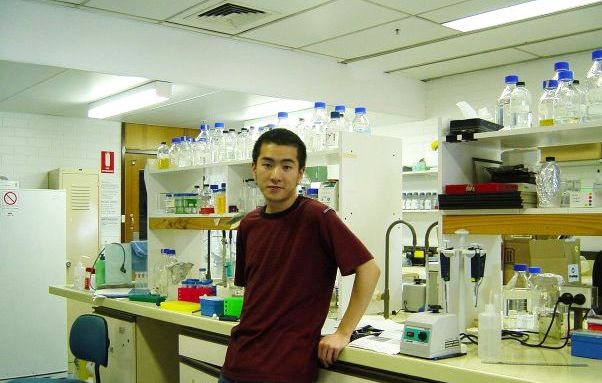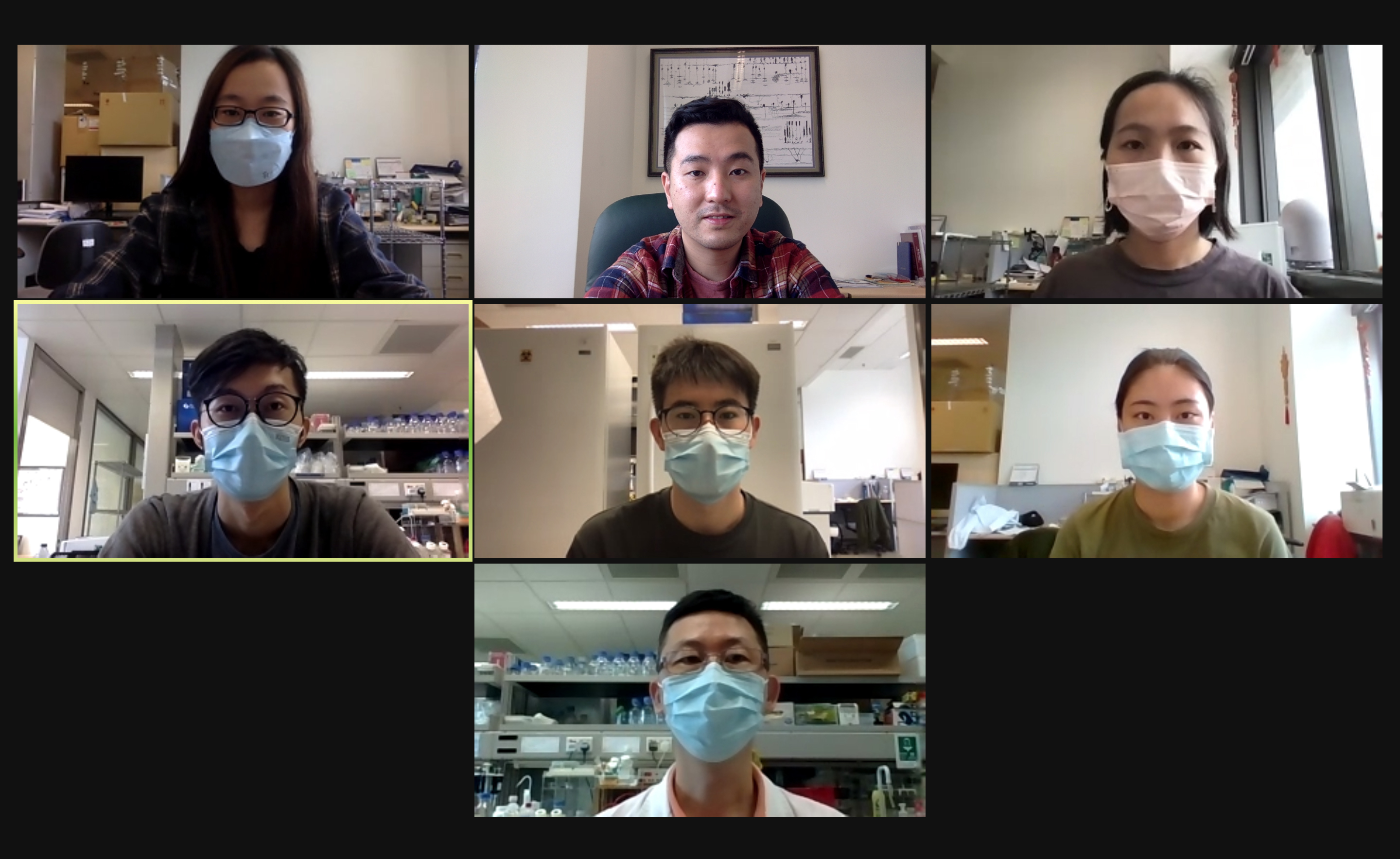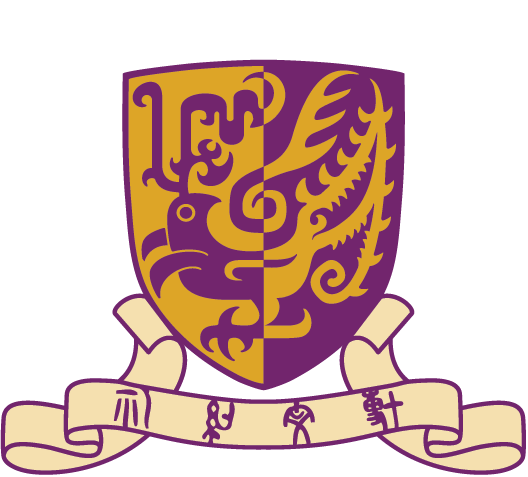Achievements
Professor Ip Pak Kan Jacque To what extent can we shape the plasticity of our brain?
“So how do we remember that we had a steak for lunch yesterday? Its size, colour and smell all become a part of our memory. What is the short-term or long-term memory mechanism in the brain?” Professor Ip Pak Kan Jacque, Assistant Professor from the School of Biomedical Sciences at CUHK smiled as he told of the thought that had puzzled him in secondary school. Surprisingly, that steak proved a good deal. The curiosity derived from it motivated Professor Ip to study biochemistry in the university and led him on the journey of scientific research into synaptic plasticity. He becomes one of the awardees of 2020 Early Career Award by the Research Grant Council (RGC) in recognition of his excellent research achievement.
From the words of a mentoring teacher to a lifelong motto
Since a little kid, Professor Ip has been passionate about the mystery of the brain and he wanted to improve the health of humanity by expending the boundary of knowledge. So, he joined a student research programme in his second year as a biochemistry undergraduate student in Australia. The programme was the first time he took part in a research project in the laboratory. Professor Iain Campbell, the professor-in-charge of the programme allowed the students to complete the research project by using molecular biological technology. “I really appreciate Professor Campbell. From his guidance and inspiration, I built up a great interest in biochemistry and neuroscience,” Professor Ip said.
Professor Ip hesitated to pursue a PhD degree because of the uncertain career path for PhD graduates, in spite of the strong persuasion given by Professor Campbell. Today, neuroscience is a part of Professor Ip’s life because of Professor Campbell’s words, which also becomes his motto, “The only limitation is your creativity! It’s a waste of your talent if you give up on the PhD.” Looking back, Professor Ip realises he made a right decision that changed his life. Although the journey of scientific research is never easy, it’s all worth it.

Prof. Ip in the laboratory of Prof. Campbell. He joined a student research programme when he was a second year student.
What is the neuro-mechanism of the synaptic plasticity?
“Neuroscience specialises in the study of the structure and function of the nervous system. Professor Ip’s current research focuses on the visual region as many neurodevelopmental disorders are related to the sensory area in our brain. Synapse is the connection site where a presynaptic neuron connects to its postsynaptic partner. The cognitive flexibility is determined by whether effective adjustments can be carried out in between synapses.”
The neuro-mechanism of the synaptic plasticity involves coordination and flexibility between the nerve cells (neurons). We utilize this in daily life as well, along the lines of practice makes perfect. Neuronal connections alter through the process of learning to accommodate the needs and changes of day-to-day activities. The impaired plasticity causes the reduced flexibility, and therefore diseases. Also the plasticity becomes weaker due to ageing. The Professor would like to understand and correct synaptic deficiencies such as autism, amblyopia and dementia by examining and strengthening the plasticity.
According to the data, patients with neurodevelopmental disorders, including children with autism, show altered response to light and sound. Professor Ip decodes the formation of neurodevelopmental disorder and the pathological mechanism of abnormal sensory detection by searching for the cause and clues to abnormal development in the mouse model. The award-winning project also covers children’s congenital amblyopia. “If a child is born with a cataract on one eye, his/her brain will automatically trigger the plasticity of the cerebral cortex to strengthen the sight of the other normal eye, forming the imbalance phenomenon” said Professor Ip. He hopes to help the patients to balance back by examining the mechanism.
Aging might accumulate harmful proteins, worsening neuronal connections, causing the death of neurons and even dementia. In the future, Professor Ip would like to figure out the way to postpone or stop the diseases caused by the imbalanced plasticity, including neurodevelopmental disorder and dementia.
My award-winning project ⸺ Investigating the roles of input-specific cooperative synaptic plasticity in visual cortical plasticity: Implications for amblyopia
“Many cutting-edge techniques and concepts are combined in this research project, including the technology of advanced microscopes, molecular biology, and complicated genome editing. As well as my years of training and experience gained from Hong Kong and the Massachusetts Institute of Technology (MIT), the cutting-edge experimental techniques and the innovative idea to tackle a neuroscience problem allow me to get the Early Career Award” Professor Ip explained modestly. The use of cutting-edge microscope technology in the experiment allows direct examination of neuronal migration and function, and help understanding of the key factor controlling the plasticity mechanism.
Reason for giving up development opportunities in the United State and Singapore and returning to HK is…
“If we don’t come back to train our next generation, how can Hong Kong develop scientific research?” Professor Ip asks. He grew up in Hong Kong. Understanding that scientific research development follows a global path, he received post-doctoral training in MIT after completing his PhD. Although he could have stayed in the US or move to Singapore for his career, he always hoped that scientific research and start-up entrepreneurship would be careers pursued by young people in Hong Kong. In addition, there are many outstanding clinical neurologists and pre-clinical neuroscientists at the Faculty of Medicine at CUHK. With the support of the School of Biomedical Sciences, he decided to return to Hong Kong.
Thinking back, Professor Ip realises that the mentors he met and encountered, from Australia to CUHK, were all very important. Their guidance inspired him and made him who he is today. Therefore, he would like to do the same. He advises students not to focus on short-term return, but to seize the chance and chase goals with passion.
Professor Ip is currently a consultant in a student concern group for rare diseases. His duty is to raise the understanding of rare diseases among the general public and their awareness of the importance of scientific research into them, so that more resources are invested in the research to solve the problems.

Prof. Nancy Ip, Prof. Jacque Ip’s supervisor, with Prof. Jacque Ip at the banquet for The Sir Edward Youde Memorial Fellowships (For Postgraduate Research Students)

Prof Ip with Prof. Eric Kandel, Nobel Laureate and founder of the field of molecular neuroscience, at an annual neuroscience conference.
From university to secondary schools
“CUHK’s School of Biomedical Sciences and Faculty of Medicine offer different courses in the first and second years of the undergraduate programme for students to build up their research interest by learning various research techniques in the laboratory” Professor Ip said. However, it’s still a challenge to attract more secondary school students to apply for the programme because, traditionally, students and parents in Hong Kong are not keen on scientific research. Through laboratory experience, he also hopes to let secondary school students step out from the classroom, get a taste of an adult workplace and build up their interest in scientific research.
Facing and accepting the failure
Scientific research is a long and challenging journey. How does Professor Ip persist in his research work? And how does he respond to failure? He tells of some of the necessary hardships that researchers must face.
“Taking up a subject that interests you is the key to continuing this long journey. If you have taken the wrong course, just drop it and switch to the right one. Don’t feel ashamed! There is always a failure or a bottleneck situation no matter whether you’re studying or doing experiments, so if you’re not taking the subject that you’re passionate about, how can you go on? Moreover, work-life balance is also important, and don’t let yourself burn out.” Professor Ip feels glad that his wife is also a researcher. They can understand and support each other to go further.

Prof. Ip at farewell party for his post-doctoral supervisor, Prof. Mriganka Sur and Mrs. Sur, and with his wife Hayley (right).
“Failure is a must-be process in the journey of scientific research. As long as you learn from mistakes, don’t dwell on a dead end. Instead, ask about and discuss issues with mentors or peers to seek solutions. Learn from mistakes, drill into a topic that you like, and look for new discovery. Meanwhile, participate in academic conferences and learn from other researchers’ work. Scientific research is not only a job, it is a part of life for the researchers because promoting the development of science is our mission” Professor Ip encourages students to continue the scientific spirit in Hong Kong.

Prof. Ip conducts a zoom discussion with all his laboratory team members.




